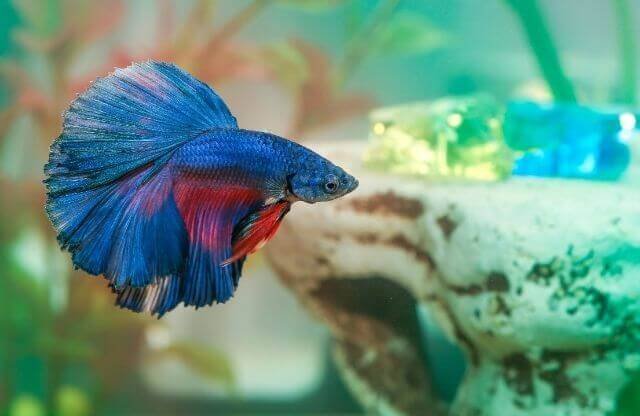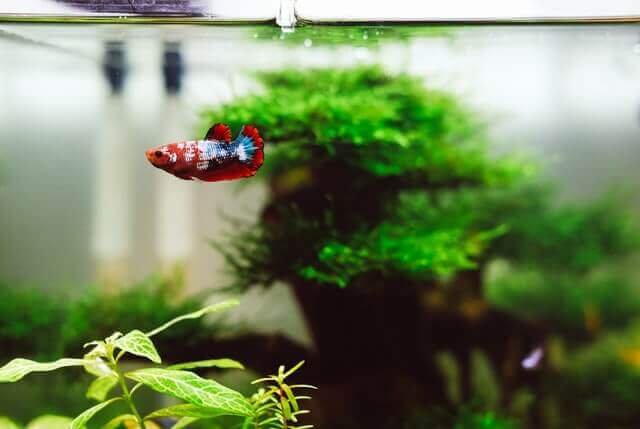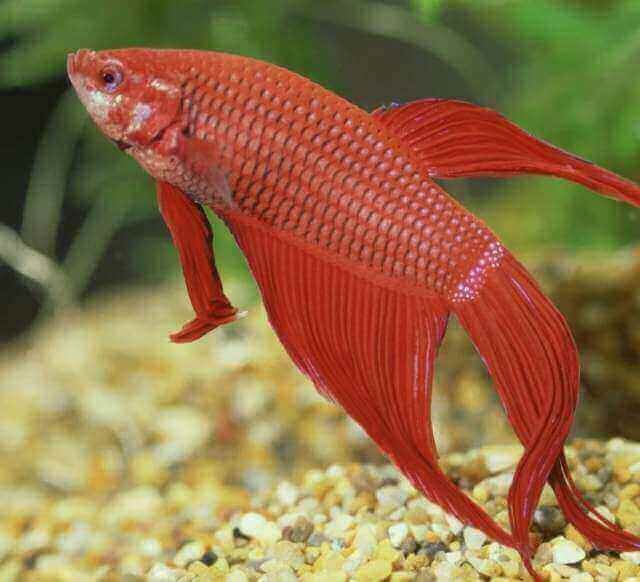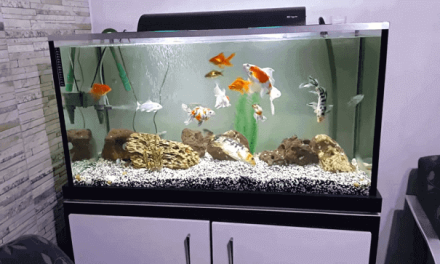Are you one of those who love to keep betta fishes in your homes? Also wants to know the right ways to how to clean your betta fish tank. Then you are on the right page. We all know that betta fishes are often sold as low maintenance and easy to care for pets. But in reality, they are a little hardy fish in terms of maintenance.
As usual, they produced waste like any other fish and so their tanks have to clean regularly to keep them healthy. If you think cleaning the fish tank is a tedious task, it is not so difficult if you follow proper procedure. Here is the step by step guide to clean betta fish tank perfectly.
Ultimate 9 Steps Guide to How to Keep a Betta Fish Tank Clean
1. Prepare your Water in Advance
Before beginning to clean your betta fish tank you may have to plan the percentage of water you have to change thus keep that much water ready with you. Remember betta fish cannot survive in normal tap waters. So in case you are using tap water neutralize its chlorine and chemical content by using a water conditioner. Keep the water for a few hours at room temperature, for evaporation of the harmful chemicals of water naturally. Now some important equipment that you will need is :
- A Fish Net
- A Gravel Vacuum(optional)
- Algae Pad
- A Waste Remover
- Bucket nearly of 5 gallon
2. Removing of the Fishes
Now the second step is removing the betta fish from the tank and putting them in some safe place for a while. For this, you can use your fishnet.
3. Removing of the Decorations
Remove all the decoration including the gravel one by one. You can even use a gravel vacuum in case your gravels are too tiny.
4. Removing of the Tank Water
Now, this is an important step to how to clean your betta fish tank. Now in case, you have planned to change 50% of water change make sure to remove that amount of water softly from the top. Try not to collect any dirt or dust particles as much you can.
You must be wondering, what’s the need to use old water. There is the main reason for keeping some amount of old water back in the tank. As your tank was filled with the water, its water has built up beneficial bacteria that make your fishes get used to it; suddenly changing all of the water makes them panic. When you have saved your required water, throw the remaining water out

5. Cleaning of Gravels and Decorations
Clean all the decorations and other accessories of the tank with warm water. Remember do not use any soaps or detergents as their residue may harm your fishes. Dry these well with the help of a clean cloth.
6. Cleaning of the Fishtank
The sixth step is how to clean a betta fish tank Perfectly. For this put the tank in the sink and fill it with some warm water. Now scrub the walls and the base of the tank using a soft brush. Take care to use a soft brush so that it does not leave scratch marks on the tank. Pay attention to the corners as well as these areas accumulate more algae, dirt, and slime.
Make sure do not use any soaps or detergents during the whole process. Once everything is cleaned give your tank a final rinse with freshwater and finally, your tank is ready to use.

7. Arranging Of the Decorations Back to the Tank
Arrange all the decorations and the gravel. Spread the gravel evenly and fix the plants firmly. You can also arrange them in some new pattern than the previous one. Attach the filters and heater (if any) back in their respective places.
8. Refilling of the Tank
When all the decorations are set, slowly pour the old water in the tank without disturbing the gravel and decorations. Now fill it up with the freshwater that you have kept earlier. In case any decoration is disturbed in the process, make them stable. Also, make sure to check the PH and temperature of the water.
9. putting of Your Betta fishes back into the Tank
Now as your tank is ready let’s introduce it to your lovely betta fishes. Slowly tilt the container in which your betta fish was kept into the tank to make the fish to swim out. Make sure they do not damage their fins in the process. Thus your tank is cleaned and is fresh for your fishes to swim and enjoy.
About Betta Fish
They belong from the Mekong basin of Thailand, Cambodia, and Vietnam. Their average life span is 2 to 3 years and approximate 3 inches long. They come in vibrant pretty colors. Betta fishes also called fighting fish, tend to intense their colors during mating or aggression.
Diet
Wild betta fishes feed on flying insects, their larvae, and a variety of worms. Sometimes they even eat small fishes. The only care should to taken they do not eat mosquito larvae as they can infect them.

Important Tips to Keep Betta Fish in Your Homes :
- Betta fish requires at least 5 gallons of tank
- The tank water must be oxygenated by plenty of natural plants and cleaned
- The more the betta fish the larger should be your fish tank.
SOME COMMONLY ASKED QUESTIONS YOU MAY LIKE TO READ :
Q1: How often do you have to clean a betta fish tank?
Ans: The answer to this is that it depends on the size of your tank. Tanks with smaller areas accumulate the toxins early while larger tanks can bear more. So, cleaning of the beta tank depends on the following factors –
- Size of your tank
- Availability of filter in the tank
- Number of betta fishes in the tank
For Smaller Tanks: Smaller tanks require frequent cleaning. For this, you have to change at least 35-50% of the water every few days.
For Larger Tanks: On the other hand, larger tanks require fewer cleanings. The best way is to change on 15-20% of the water once a week. On the other hand, when you feel that it’s not good enough to change only one-fourth of the water you may need to clean the tank completely. Such a condition may arise within one or two months.
Q2: How do I keep my betta fish tank clean longer?
Ans: If you are tired to clean your betta fish tank again and again. Here are a few of the tips that can make your betta fish tank require less frequent cleaning.
Option-1: Purchase a Larger Tank
Larger tanks are much easier to maintain in terms of cleaning. As they contain more water it takes time for the fishes to contaminate the water. The harmful waste gets distributed evenly in plenty of space. Thus the water remains clean for a longer period. On the other hand, a smaller tank gets dirty quickly due to less quantity of water in them as compared to larger tanks.
Option-2: Get an Efficient and Larger Filter
One of the easiest ways to reduce your cleaning part is to buy an efficient and larger filter. Keep this thing in mind that the size of the filter should be compatible with the size of your tank for better results. For example, if you have a ten-gallon tank you will need a filter that would clean at the rate of least 15-20 gallons. Remember that betta fish feel uncomfortable in high water flow and like to remain in low currents. So plan your filter accordingly. Some other tips are –
- Keep fewer betta fishes
- Keep live plants as they built a natural ecosystem
- Do not overfeed the fishes
Q3: Why is my betta fish tank so dirty?
Ans: Generally, your fish tanks can get dirty due to poor management or disturbances in the ratio of tanks to fish. Some of the important reasons are –
- Poor set up of the tank
- Poor or irregular maintenance
- Poor filtration techniques
- More number of fishes in a comparatively small tank
- Deposition of excessive fish waste or leftover fish food.
What to do Now?
You can check all the above steps one by one to conclude. You can even consult some experts and can give them details regarding the size of your tank and fish. They will surely guide you with proper instruction.
Q4: Are betta fish easy to take care of?
Ans: Betta fish is a beautiful half-moon fan-tailed fish. Just they are pretty it does not mean they are difficult to keep and maintain. You can easily keep a single betta fish in a small aquarium or a fishbowl.
Conclusion
Now as you are well aware of how to clean your betta fish tank. Cleaning of the tanks keeps your fishes healthy and happy. You too can enjoy watching the fishes in clean and crystal water. As you can see that it is not rocket science to clean such tanks. They are quite easy.
Remember the process is the best for smaller sized tanks, for larger tanks can be a problem. You may need a helper to assist you with your task. Changing 20-30% of the water weekly and installation of an efficient filter will help you to reduce the need to clean your tank at frequent intervals.















